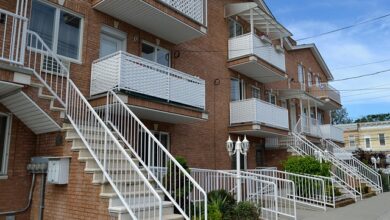How to Choose the Best Homeowners Insurance Policy in Singapore

Homeownership is a significant milestone, but it also comes with responsibilities—including protecting your investment with the right homeowners insurance policy. In Singapore, where property prices are among the highest in the world, safeguarding your home and belongings against unforeseen events is essential. Whether you live in a private condominium, HDB flat, or landed property, choosing the best homeowners insurance policy ensures peace of mind and financial security. In this guide, we’ll walk you through the steps to select the ideal policy for your needs.
Why Do You Need Homeowners Insurance in Singapore?
While Singapore is relatively safe and free from natural disasters like earthquakes or hurricanes, risks such as fire, theft, water damage, and accidents still exist. Homeowners insurance provides financial protection against these perils, ensuring you’re not left to bear the full cost of repairs or replacements. Additionally:
- Protects Your Investment: Covers structural damage to your home.
- Covers Personal Belongings: Reimburses losses due to theft, fire, or other covered events.
- Liability Protection: Shields you from legal and medical expenses if someone is injured on your property.
- Peace of Mind: Allows you to focus on recovery rather than financial stress after an incident.
Even though HDB owners are required to have fire insurance, additional coverage can provide more comprehensive protection.
Key Components of a Homeowners Insurance Policy
Understanding what a standard policy includes is the first step in evaluating your options:
- Structure/Building Coverage: Protects the physical structure of your home (walls, roof, floors) against covered perils like fire, lightning, and explosions.
- Contents Coverage: Covers personal belongings inside your home, such as furniture, electronics, clothing, and appliances.
- Personal Liability Coverage: Provides financial protection if you’re held responsible for injuries or damages to third parties.
- Loss of Rent Coverage: Compensates for lost rental income if your property becomes uninhabitable due to a covered event.
- Additional Benefits: Some policies include perks like emergency assistance, locksmith services, or temporary accommodation.
Steps to Choose the Best Homeowners Insurance Policy
1. Assess Your Coverage Needs
Start by evaluating what you need to protect:
- Type of Property: The value of your home (HDB, condo, or landed property) will influence the level of coverage required.
- Contents Value: Create an inventory of your belongings to estimate their total worth. Consider high-value items like jewelry, art, or electronics.
- Liability Risks: If you frequently host guests or rent out part of your property, liability coverage becomes more critical.
2. Understand the Types of Policies
In Singapore, homeowners insurance policies typically fall into two categories:
- Fire Insurance: Mandatory for HDB owners, covering basic fire-related risks. It’s often insufficient for comprehensive protection.
- Home Contents Insurance: Offers broader coverage, including theft, water damage, and liability.
For maximum security, consider upgrading to a comprehensive policy that combines both building and contents coverage.
3. Compare Quotes from Multiple Providers
Premiums can vary significantly between insurers, so shopping around is key. Use online comparison tools or consult with brokers to gather quotes from multiple companies. When comparing:
- Coverage Limits: Ensure the policy meets your needs without gaps.
- Exclusions: Review what’s not covered and whether additional endorsements are available.
- Deductibles: Higher deductibles lower premiums but require more out-of-pocket payment in case of a claim.
4. Check the Insurer’s Reputation
Research the reputation of potential providers by:
- Reading Customer Reviews: Look for feedback on claims handling, customer service, and responsiveness.
- Checking Financial Strength Ratings: Companies with strong ratings from agencies like AM Best or Standard & Poor’s are more likely to honor claims promptly.
- Asking Friends and Family: Personal recommendations can provide valuable insights.
Reputable insurers in Singapore include AIG, AXA, Aviva, and NTUC Income.
5. Evaluate Discounts
Many insurers offer discounts that can reduce your premium. Common examples include:
- No-Claim Discounts: Reward for maintaining a claim-free record.
- Bundling Discounts: Combine home and auto insurance with the same provider.
- Security Features: Install smoke detectors, burglar alarms, or smart home devices to qualify for reduced rates.
- Loyalty Discounts: Stay with the same insurer for several years.
Always ask about available discounts when speaking with insurers.
6. Consider Regional Risks
While Singapore doesn’t face natural disasters like earthquakes, certain risks are more common:
- Flooding: Low-lying areas may be prone to flash floods during heavy rains.
- Water Leaks: Burst pipes or leaks from upper floors can cause significant damage.
- Theft: Burglaries, though rare, can still occur.
Discuss these risks with your insurer to ensure you’re adequately protected.
7. Review Policy Exclusions Carefully
Every policy has exclusions—events or circumstances not covered by the insurer. Common exclusions include:
- Wear and Tear: Damage resulting from aging or neglect isn’t covered.
- Acts of War or Terrorism: These are typically excluded unless specified.
- Intentional Acts: Damage caused deliberately by the homeowner won’t be reimbursed.
Make sure you understand these exclusions and explore optional add-ons if needed.
8. Work with a Licensed Broker
If you’re unsure where to start, consider working with a licensed insurance broker. Brokers have access to multiple insurers and can help you find a policy that fits your budget and needs. They also provide unbiased advice and assist with claims if necessary.
9. Reassess Your Policy Annually
Your insurance needs may change over time due to factors like renovations, new purchases, or lifestyle changes. Review your policy annually to ensure it still aligns with your current situation.
Common Mistakes to Avoid When Choosing Homeowners Insurance
- Underinsuring Your Home: Failing to account for the full replacement cost of your home can leave you underprotected.
- Ignoring Optional Coverage: Skipping endorsements for regional risks or high-value items can lead to costly surprises.
- Focusing Only on Price: Cheaper premiums might come with inadequate coverage or poor customer service.
- Not Updating Your Policy: Major life events, such as renovations or acquiring expensive belongings, should prompt a policy review.



